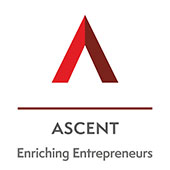Blog
Developing an Organisational Culture to be proud of
Leadership should not be a solitary act. Leaders need to surround themselves with people who will challenge their ideas, point out their shortcomings, and tell it like it is. To be an effective unit, the management needs to ensure that honest opinions and information reach them. Get your people to bother you by bothering them. Open door policies are well intentioned, but one needs to go further in order to build a truly conducive organisational culture.
For a truly PARTICIPATIVE CULTURE, the organisation must be ‘taught’ to express their opinions without hesitation and group discussions, team-building exercises, inter-departmental collaborative activities etc should be encouraged.
Under Mr. Harsh Mariwala’s guidance, the culture at Marico Ltd is one that calls for approachability and open channels of communication. Relevant information is shared across the organisation and people operate on first name basis. There are no artificial barriers and team consensus takes precedence. Ample autonomy is given across cadres and people are rewarded for their candor. No wonder Marico Ltd has been leading the Nation in establishing true Business Innovation.
Mr. Mariwala further extends his commitment to establishing an inclusive culture at Marico by putting ‘People’ as the first of the 3 P’s on which his organisational strategy operates; the other two being Process and Product. Mr. Mariwala reiterates that it is only with a participative culture that an organisation can hope to exceed consumer expectations on the market place,
To keep the faculties of his most prized assets sharp and attuned to the right information, Mr. Mariwala emphasizes upon skill-enhancement workshops, training sessions with specialists etc. for all of his employees.
Encouraging younger and older employees to share knowledge, ideas, advice makes sense. It is a well-established fact that old-school, top-down mentoring programs assigning mentors to protégés don’t work as well as relationships that come about organically.
Helping an employee understand key strategies while simultaneously motivating them to achieve the same is a challenge that most leaders face. A good leader knows that the only way one can instill enough confidence and adequate skills in their employees to think-and-execute instead of blindly executing, would be through setting the right organisational value-systems in place. The litmus test being, that when faced with a choice an employee should be able to test his/her options against the strategic principle to make a decision that lines up with the company’s objectives.


